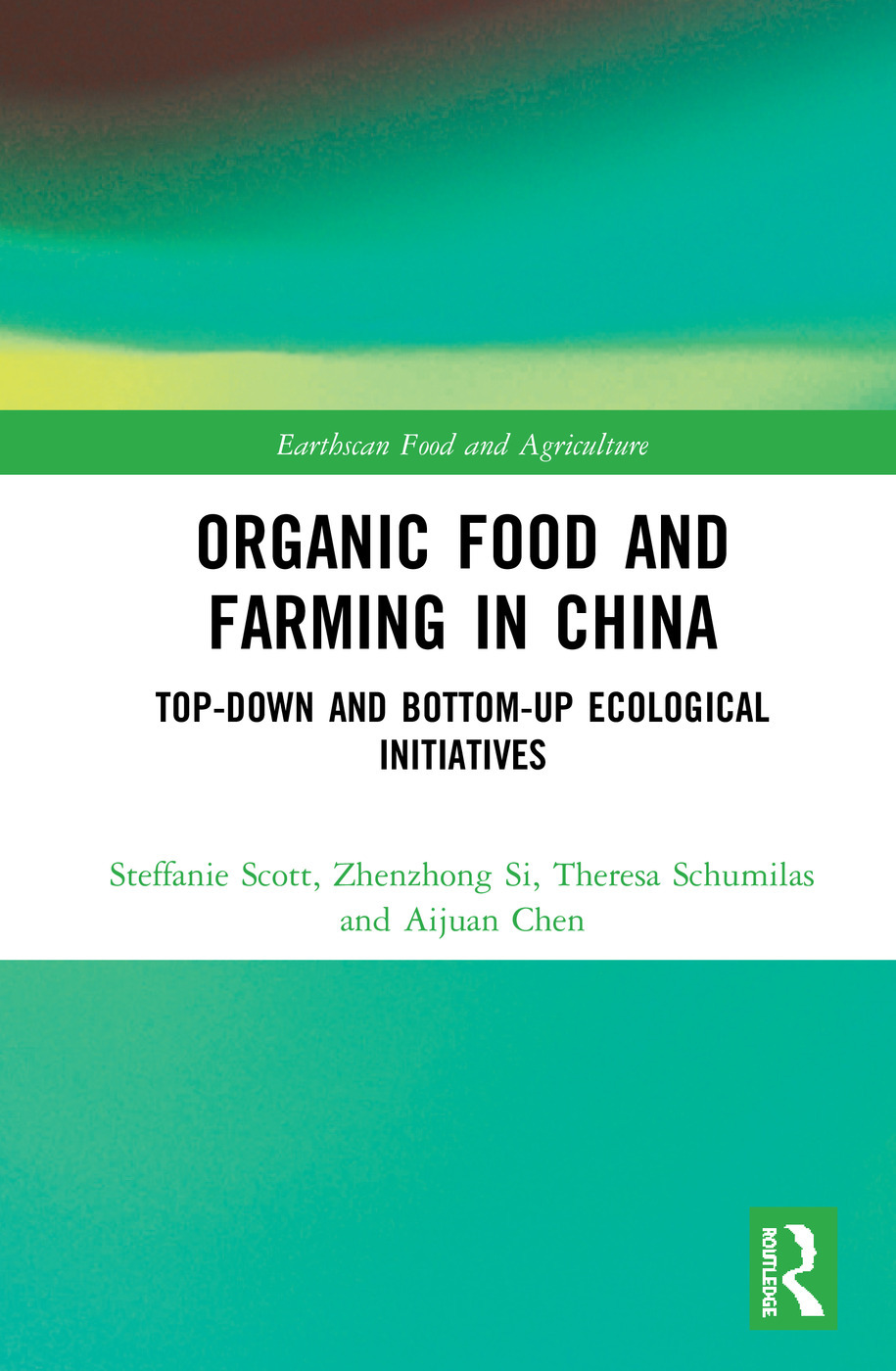BOOK

Organic Food and Farming in China: Top-down and Bottom-up Ecological Initiatives
Authors: Steffanie Scott, Zhenzhong Si, Theresa Schumilas, Aijuan Chen
New York: Routledge, 2018.
Despite reports of food safety and quality scandals, China has a rapidly expanding organic agriculture and food sector, and there is a revolution in ecological food and ethical eating in China’s cities. This book shows how a set of social, economic, cultural, and environmental conditions have converged to shape the development of a “formal” organic sector, created by “top-down” state-developed standards and regulations, and an “informal” organic sector, created by ‘bottom-up’ grassroots struggles for safe, healthy, and sustainable food. This is generating a new civil movement focused on ecological agriculture and quality food.
Organic movements and markets have typically emerged in industrialized food systems that are characterized by private land ownership, declining small farm sectors, consolidated farm to retail chains, predominance of supermarket retail, standards and laws to safeguard food safety, and an active civil society sector. The authors contrast this with the Chinese context, with its unique version of “capitalism with social characteristics,” collective farmland ownership, and predominance of smallholder agriculture and emerging diverse marketing channels. China’s experience also reflects a commitment to domestic food security, evolving food safety legislation, and a civil society with limited autonomy from a semi-authoritarian state that keeps shifting the terrain of what is permitted. The book will be of great interest to advanced students and researchers of agricultural and food systems and policy, as well as rural sociology and Chinese studies.
